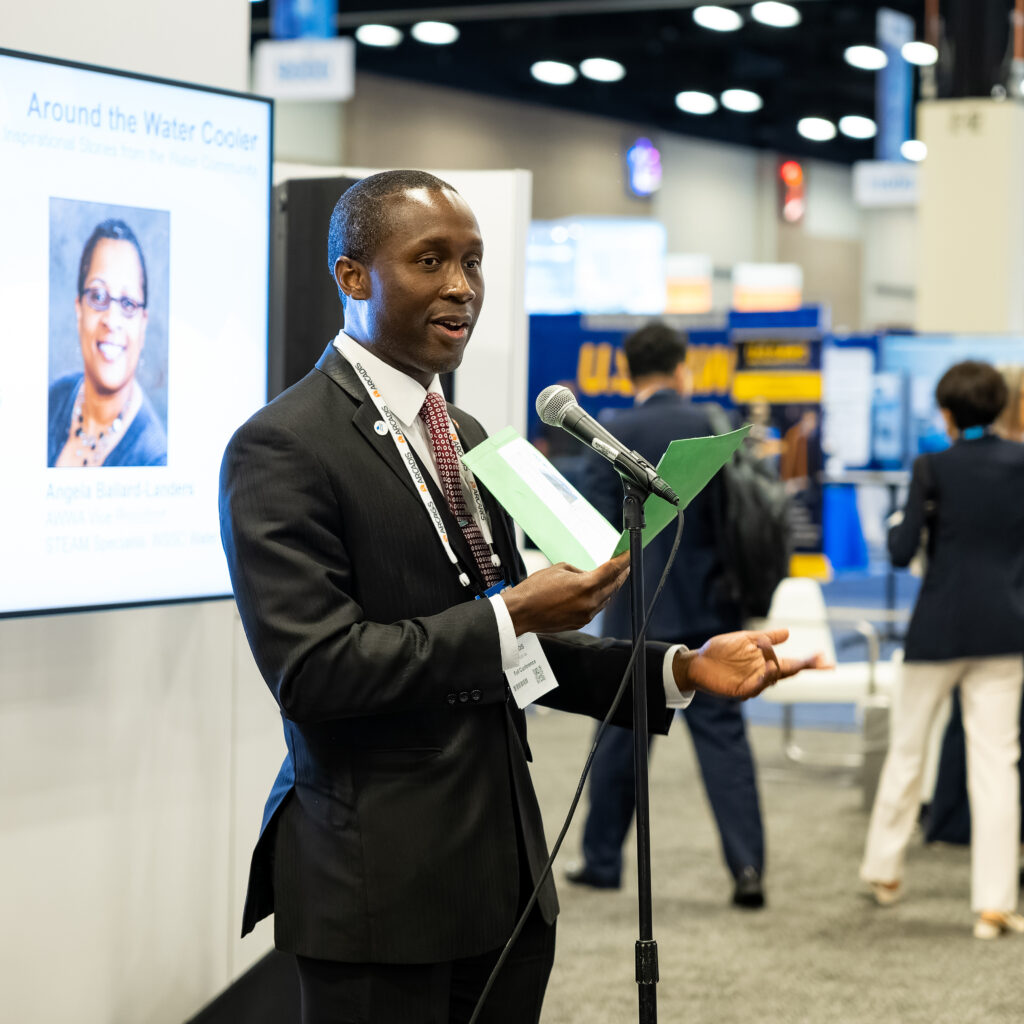Diversity, Equity, Inclusion, & Belonging
AWWA promotes diversity, equity, inclusion, and belonging in publications, training and event programming, and standards development. At ACE, we show our inclusion for all our members and attendees in our programming, our staff, and our mission.


Diversity & Inclusion in Water at ACE
Diversity and inclusion is on the agenda at AWWA’s Annual Conference and Exposition (held each June). One of the global water community’s largest and most prestigious gatherings, ACE features educational sessions and networking events focused on diversity, equity, inclusion, and belonging (DEIB).
Each year, we invite all ACE attendees to join fellow thought leaders to discuss issues facing the water community. ACE is the perfect opportunity to explore the many facets of how DEIB shows up in the water industry.
We offer a wide array of sessions on diversity in leadership, community engagement, communication, and career empowerment. This year, we are hosting our Water 2050 session with members of Water 2050’s Equity, Access, and Community Engagement Strategic Implementation Team members. We aim to foster a culture where everyone has a personal connection to – and shared responsibility for – our water future.
AWWA believes diversity, equity, and inclusion create a vibrant, informed, and equitable water community. We hope to see you at ACE!
“The water sector thrives when we recognize that behind every pipe, pump, and policy is a person — a neighbor, a community member, a voice that deserves to be heard and respected. Technical skills are essential, but empathy, communication, and trust are what transform projects into progress.”
Nicole E. Brown
Area Growth Lead, Water, Gannett Fleming
“ACE is one of my favorite industry conferences. As someone who’s been active in DEIB for several years I always enjoy the diversity-related technical sessions, networking events and committee meetings. It’s also a great place to connect with colleagues and make meaningful connections.”
Donnell Duncan, P.E., S.E.
Associate Vice President, Arcadis
“As a relatively new attendee to ACE, it has quickly become the premier event of the year. The amount of energy put into highlighting different voices and perspectives across the water industry is second to none. From sessions to networking to social events, the representation of diversity in the programming is considered and thoughtful. Everyone is welcome, and that feeling is baked into the fabric of ACE.”
Amanda Jones
Tucson Water
